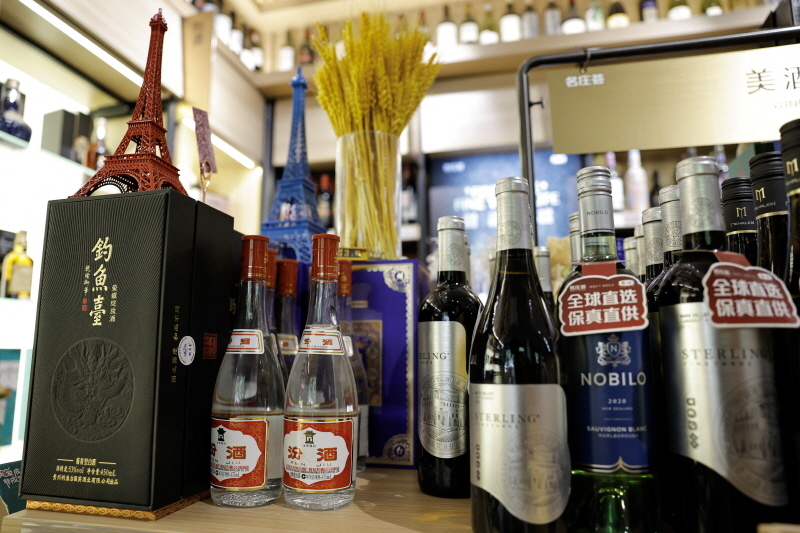North Korea notably ramped up its imports of Chinese baijiu last month, purchasing over $1 million worth of the traditional Chinese liquor in August.
According to Voice of America, citing detailed trade data released by China’ General Administration of Customs on September 20, North Korea’s imports of baijiu from China amounted to $1.76 million in August.
This marks a 37-fold increase compared to the $47,770 worth of baijiu imported in July. Additionally, the figure is significantly higher than the monthly average of $80,000 in baijiu imports from January to July, representing a rise of $1.68 million.

In recent months, North Korea has reduced its imports of beer, distilled spirits, and vodka from China. Between January and July, North Korea’s total liquor imports amounted to $3.29 million, just under half the $6.28 million imported during the same period last year. However, the sudden spike in baijiu imports in August stands out.
No significant changes have been observed in the import values of other alcoholic beverages, suggesting that the increase is specific to baijiu imports. The reason behind North Korea’s sharp rise in baijiu imports remains unclear.
The United Nations Security Council has prohibited North Korea from importing luxury goods, including high-end liquors, since the adoption of Resolution 1718 in 2006. This ban was reiterated in Resolutions 2270 and 2321 passed in 2016.
In line with these sanctions, the United States, South Korea, Japan, and the European Union have all listed luxury items, including whiskey and wine, as banned goods for North Korea. However, China has not included alcohol in its list of prohibited luxury goods for North Korea.
Meanwhile, North Korea’s exports to China saw a significant increase in August, particularly in key categories. Trade between North Korea and China increased by 22% in August compared to the previous month. This rise included a boost in North Korea’s exports of wigs, wristwatches, and other key items.
In August, North Korea’s largest export category to China—wigs, false eyelashes, and other synthetic hair products—amounted to $14.07 million, a 34% increase from $10.47 million in July. Additionally, North Korea re-exported $1.733 million worth of wristwatch components to China, marking the highest export value in this category for the year.
On the import side, several North Korean import categories saw significant increases. Notably, human hair, a key raw material for wig production, was North Korea’s largest import item from China in August, valued at $13.59 million—up $4.02 million from $9.57 million in July. After a dip in July, where the monthly import value fell below $10 million for the first time this year, the import level rebounded in August.
China’s rice exports to North Korea also saw a rise, with the value increasing by 61%, from $666,000 in July to $1.077 million in August.
BY YOUNGNAM KIM [kim.youngnam@koreadaily.com]





